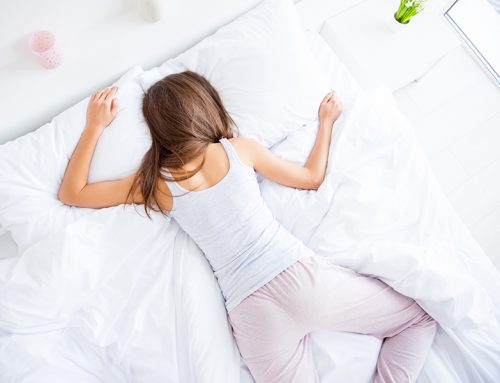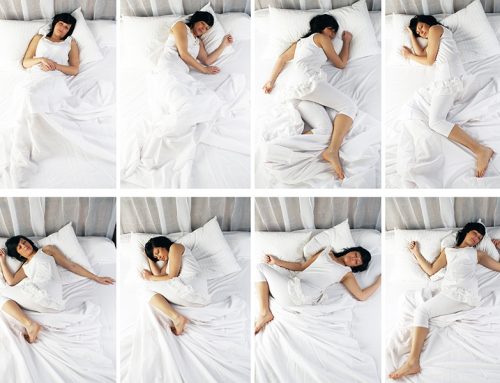 No matter what age you are, sleep is a necessary part of our lives. Our bodies need it to stay in good health. Even one night of inadequate sleep can have you feeling all sorts of confused and disoriented. You’ll feel sluggish and unproductive. This not only going to affect you but those around you—at work, at home and among those you’re closest with.
No matter what age you are, sleep is a necessary part of our lives. Our bodies need it to stay in good health. Even one night of inadequate sleep can have you feeling all sorts of confused and disoriented. You’ll feel sluggish and unproductive. This not only going to affect you but those around you—at work, at home and among those you’re closest with.
Out of all of the things we could do with less of, sleep is certainly not one of them. According to the National Sleep Foundation, Americans need about 7.1 hours of sleep every night to feel their best but a staggering 73 percent don’t achieve this on a regular basis.
If you’re on this page, this might not even shock you because you may be experiencing the same thing and seeking answers on what to do about it. And that’s why we’re here to help.
Sleep deprivation and sleep dept
Sleep deprivation is a result of inconsistent sleep or reduced quality of sleep. Generally, it comes down to getting less than 7 hours of sleep on a regular basis.
Along the same lines, sleep debt is what happens when you’re consistently owing your body more sleep than you’ve been giving it. A good way to think of it is by using a banking analogy. Similarly to our bank account, when we don’t get enough sleep, our “sleep account” goes into the negatives and we need to pay it back.
The more sleep debt we pile up the longer and more difficult it gets to repay it back. Sometimes it can take up to four days to recover from an hour of lost sleep.
Signs you aren’t getting enough sleep
Notice the signs that you (or someone you know) is sleep deprived so you can address it as soon as possible. A person who experiences sleep deprivation will experience one, but likely more of the following:
Irritability
Mood changes
Falling asleep within 5 minutes of lying down during the day or during a calm activity such as watching a movie
Waking up feeling groggy and having a hard time getting out of bed
Increased depression and anxiety
Difficulty focusing and remembering things
A reduced sex drive
Daytime fatigue or frequent yawning
Frequent breakouts
You’re constantly drinking caffeinated beverages to stay awake
The health effects of sleep deprivation
In the case of sleep deprivation or sleep debt, it’s not good to fall into the mindset of “I’ll sleep when I’m dead.” Getting ahead or prioritizing so many other things besides our essential need for sleep could quite literally be deadly.
The short and long-term effects of chronic sleep deprivation has serious implications for our physical and mental health. Below are some of the ways that sleep deprivation can cause negative consequences on our lives:
How much sleep do I need?
These are the recommended hours of sleep according to the Centers for Disease Control and Prevention (CDC). It’s worth mentioning that sleep quantity and sleep quality are equally important. Eight hours of low quality, interrupted sleep will also leave you sleep deprived.

How to improve your sleep
If you experience any of the symptoms we mentioned above, or aren’t getting the amount of sleep you need, there are sleep habits and treatments you can put into use to sleep better and longer. But if your sleep issues are really persistent or you’re sleeping during the day even after a full night’s sleep, consult your doctor.
Behavioral and cognitive treatments
These are approaches that don’t involve drugs, but some outside intervention from a professional. They can be done individually or in a group.
- Cognitive therapy: also known as CBT, this is commonly used for sleep disorders and it teaches you to identify and subsequently change negative beliefs that are responsible for your sleep problems.
- Behavioral therapy: teaches you to avoid behaviours that keep you awake and how to replace them with better sleep practices.
Practice good sleep hygiene
- Maintain a consistent sleep routine. Wake up at the same time and go to bed at the same time. Consistency is key.
- Avoid too many daytime naps because they decrease the amount of sleep you’ll need the next night which could lead to continually prolonged sleep fragmentation and waking up.
- Include regular exercise into your routine, saving it more for the morning or daytime hours.
- Don’t watch tv, use your phone or the computer. The blue light from electronic devices can adversely impact your circadian rhythm and natural melatonin hormones.
- Avoid caffeinated drinks or sugar too close to bed.
Create a sleep sanctuary
- Keep your sleep space quiet, dark and cool. Consider using earplugs, darkening shades or a fan for white noise if need be.
- Keep electronics out of your room.
- Regularly tidy or clean your space to give you peace of mind.
- Have a comfortable mattress, pillows and bedding.
Build a relaxing bedtime routine
- Practice meditation or mindfulness training before bed. There are plenty of sleep apps to help you with this.
- Pick up a good book and get lost in the pages
- Journal and write down your worries, thoughts and things you’re grateful for.
- Soak in a hot bath with some candles and aromatherapy.
Good sleep is important
Remember—sleep is not a waste. It’s just as important as eating the right foods, exercising, spending time with loved ones and working. In fact, it makes all of those other aspects of life even better. Getting quality sleep means you’re overall mental and physical health will be in better shape, allowing you to live through the moments that matter most.





